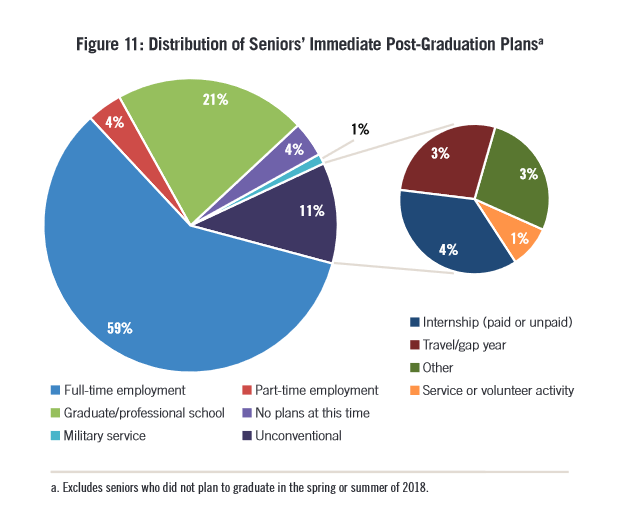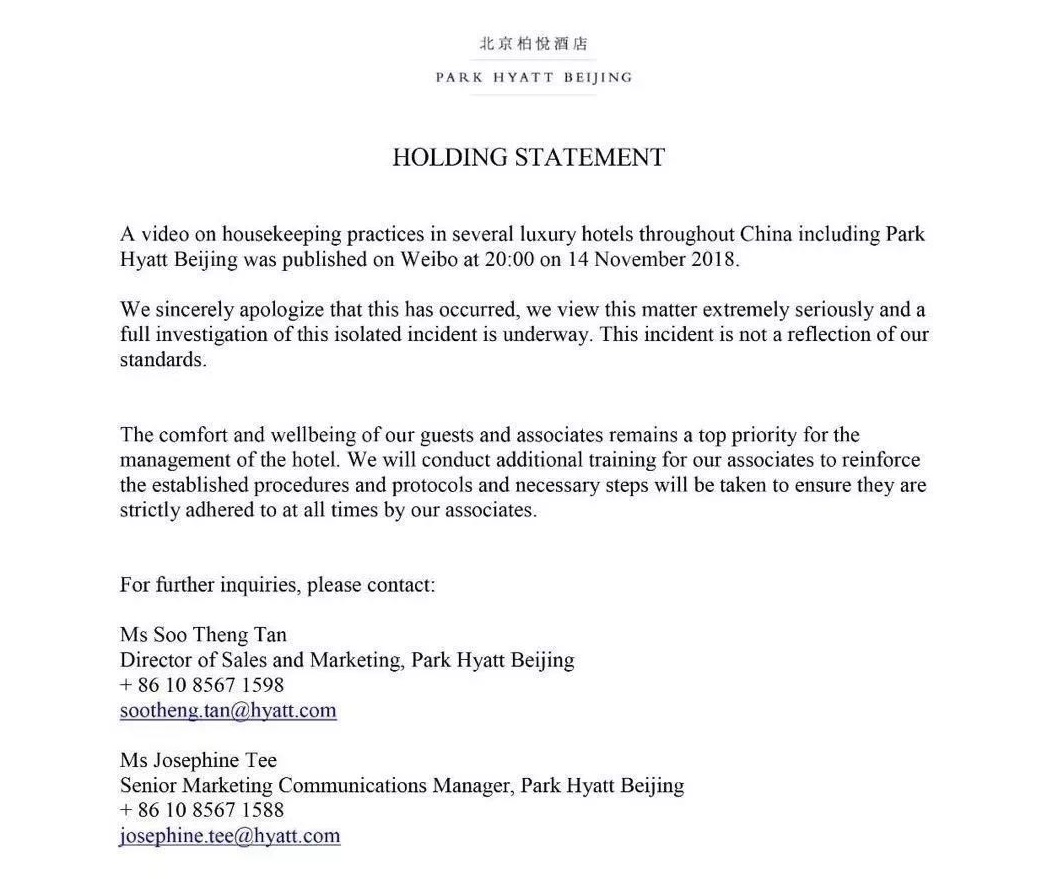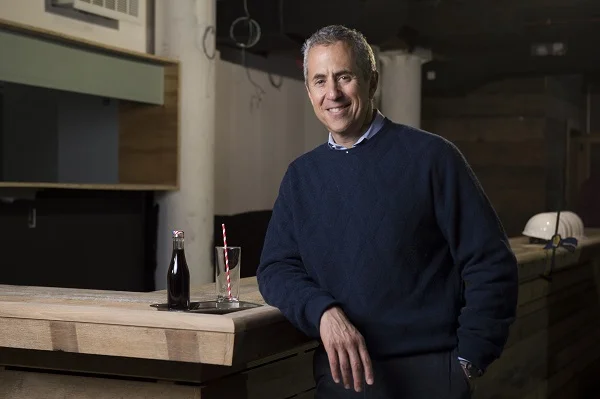Facebook Defends Sharing Information with Partners
Facebook is responding to new criticism about how it shares users’ information. A New York Times report identified a few examples of how Facebook allowed other technology companies to access private information:
Facebook allowed Microsoft’s Bing search engine to see the names of virtually all Facebook users’ friends without consent, the records show, and gave Netflix and Spotify the ability to read Facebook users’ private messages.
The social network permitted Amazon to obtain users’ names and contact information through their friends, and it let Yahoo view streams of friends’ posts as recently as this summer, despite public statements that it had stopped that type of sharing years earlier.
In a blog post, Facebook’s Director of Developer Platforms and Programs, Konstantinos Papamiltiadis, explained the reason for about 150 companies to have such access:
Today, we’re facing questions about whether Facebook gave large tech companies access to people’s information and, if so, why we did this.
To put it simply, this work was about helping people do two things. First, people could access their Facebook accounts or specific Facebook features on devices and platforms built by other companies like Apple, Amazon, Blackberry and Yahoo. These are known as integration partners. Second, people could have more social experiences—like seeing recommendations from their Facebook friends—on other popular apps and websites, like Netflix, The New York Times, Pandora and Spotify.
To be clear: none of these partnerships or features gave companies access to information without people’s permission, nor did they violate our 2012 settlement with the FTC.
The post goes on to explain the value to Facebook users of having their information shared.
Discussion:
Read the full blog post. How well does the company defend its practices? Analyze the audience, communication objectives, writing style, and so on.
How well does the company accept responsibility for sharing information?
What else, if anything, should Facebook do to rebuild its image? The company has faced increased criticism and regulatory interest in the past few months.
NIH Changes Funding Practices
Following criticism in May, the National Institutes of Health (NIH) ended a study aiming to understand whether drinking alcohol every day could have health benefits. The study received $67 million in funding from six alcohol companies.
Now, the NIH is sharpening its guidelines for how employees of its eight institutes seek donations. The NIH director said, “We have to do everything we can to ensure the integrity of the NIH grants process and the quality of our research is above reproach, which means worrying about conflicts.” In addition, the NIH is planning for consistency across its institutes.
Some wonder why the NIH wasn’t already practicing due diligence and preventing conflicts of interest. Critics say the NIH isn’t doing enough and should accept private funding only for general use—not for specific research.
Discussion:
What’s your view of the NIH’s practices? How is this situation an issue of integrity for the organization?
The NIH’s credibility has taken a hit. What can the leaders do to recover the organization’s image?
Report on Larry Nassar
A new report on the former Olympics coach and doctor, Larry Nassar, blames officials at Michigan State University, the U.S. Olympics Committee (USOC), and USA Gymnastics for allowing his abuse of hundreds of girls over decades. The investigators concluded, “Numerous institutions and individuals enabled his abuse and failed to stop him.”
In some cases when officials learned of an abuse allegation against Nassar, they waited weeks or months to report to; in other cases, officials reported claims but didn’t do enough to follow up. In still other cases, officials did nothing at all.
Nassar was finally convicted and sentenced to what will be life in prison. With the report results, some hope the USOC will now be investigated.
The report aligns with an NPR podcast, Believed, tracing claims against Nassar and his medical defense, which was accepted by too many for too long.
Discussion:
How do you think the abuse continued for so long? If you listen to the podcast Believed, you’ll hear Nassar’s defense during police interviews.
Analyze the report. What business communication principles are followed, and in what ways could the report be improved?
Google CEO Faces Congress
Google CEO Sundar Pichai responded to U.S. lawmakers’ concerns about misinformation, bias, and other issues resulting from Google search algorithms.
Pichai answered questions about how Google search works. For example, Rep. Zoe Lofgren of California asked why bias exists is search results: when you type in “idiot,” he said, you get images of President Trump. Here is Pichai’s response:
"We provide search today for — anytime you type in a keyword, we as Google, we have gone out and crawled and stored copies of billions of webpages in our index. We take the keyword and match it against webpages and rank them based on over 200 signals, things like relevance, freshness, popularity, how other people are using it. And based on that, at any given time, we try to rank and find the best results for that query. Then we evaluate them with external raters to make sure, and they evaluate it to objective guidelines, and that's how we make sure the process is working."
Pichai then assured lawmakers, “We don't manually intervene on any particular search result." He also confirmed their attempts to improve information credibility:
"We are constantly undertaking efforts to deal with misinformation. We have clearly stated policies and we have made lots of progress in many of the areas . . . over the past year — so, for example, in areas like terrorism, child safety, and so on.”
As we saw when Mark Zuckerberg testified to lawmakers earlier this year, some representatives had fairly basic questions and misunderstandings about technology. At one point, a representative asked why certain images appeared on his granddaughter’s iPhone, and Pichai had to clarify, “Congressman, iPhone is made by a different company."
Discussion:
How well did Pichai address the search result question about President Trump?
When Pichai said that Apple made the iPhone, laughter erupted. Should he have handled this question differently?
Watch excerpts of Pichai’s testimony. Assess his delivery skills, persuasive strategies, and so on.
Cheesecake's Failed Promotion
To celebrate its 40th anniversary, Cheesecake Factory offered free cheesecake delivery, but stores ran out and deliveries were slow.
Through the app DoorDash, customers ordered a free slice of the cake. The company said 40,000 slices were available, and people who didn’t get their promised piece got angry. Drivers were put in uncomfortable positions, sometimes waiting hours for orders to be ready for delivery. A flight between drivers broke out in Arlington, VA, and one got arrested.
The company responded by expressing gratitude for the tremendous interest and by complimenting themselves for delivering 60,000 slides—but no apology came. DoorDash tweeted, “A huge shoutout to all of the hardworking Dashers who made this exciting day possible! You’re the real MVPs.” A Cheesecake Factory spokesperson said, “Our Day of 40,000 Slices promotion had such a tremendous response from our guests that we extended it and delivered more than 60,000 complimentary slices. We were truly humbled by the popularity of the offer and by how quickly our fans responded as all of the 60,000 complimentary slices were ordered within an hour of the promotion's start time."
Discussion:
How could Cheesecake Factory have done a better job planning the promotion?
Should the company response be different? Do you think the leaders should apologize? Why or why not? If so, what would be an appropriate apology?
Google Translate Decreases Bias
In the past, if you entered “o bir doktor” in Turkish into Google Translate, you would get the result: “He is a doctor.” In a blog post, the company explained that translations were based on common usage, so “it would skew masculine for words like strong or doctor, and feminine for other words, like nurse or beautiful.”
Now, Google Translate will offer both a masculine and a feminine possible translation. The company plans more changes: “We're already thinking about how to address non-binary gender in translations, though it’s not part of this initial launch.”
A Gmail product manager identified the gender-bias problem in the Smart Compose technology, which is used to predict what users will type. Computer-generated follow-up questions to “I am meeting an investor next week,” included “Do you want to meet him?”
Gender pronouns is one issue AI programmers want to solve to improve natural language generation (NLG), which finishes our sentences for us.
Discussion:
What’s your experience with NLG? For example, how helpful do you find Gmail’s suggestions for finishing your sentences in email?
What’s your view of Google’s attempt to decrease gender bias? Is this a worthy goal? Why or why not?
Trump Undocumented Workers Speak Out
Employees of Trump National Golf Club in Bedminster, NJ, say they are undocumented in the U.S. and express disappointment at the president’s comments about immigrants. For five years, Victorina Morales has worked at the property, and her responsibilities sometimes include providing housekeeping services for the president’s private quarters.
Although the president may not have known about their status, Morales and a former employee say several within the housekeeping, maintenance, and landscaping crews don’t have papers to work legally in the U.S.
Morales said her status is known at the club, and she was hurt when she heard the president comparing recent immigrants to criminals:
“We are tired of the abuse, the insults, the way he talks about us when he knows that we are here helping him make money. We sweat it out to attend to his every need and have to put up with his humiliation.”
During the presidential campaign, President Trump said of his businesses, “We didn’t have one illegal immigrant on the job.”
Discussion:
What risks does Morales take by speaking out? Why might she forge ahead and not be deterred by those risks?
How is this a potential issue of integrity for President Trump?
Should President Trump be held accountable for undocumented workers on his properties? Why or why not?
Deutsche Bank on the Defense
With stock at an all-time low and a German government raid last week, Deutsche Bank is trying to reassure customers and shareholders. Finance chief James von Moltke said on CNBC, “To date, we’re not aware of any wrongdoing on our part.” The investigation relates to the Panama Papers, which are documents made public in 2016 that revealed tax havens for individuals from more than 200 countries.
Throughout the CNBC interview, von Moltke tries to put the issue into perspective. He says the investigation involves a small, trust services business that the bank sold earlier this year. However, some of the money laundering accusations involve current managers. Still, von Moltke claims that new precautions are in place today.
Deutsche Bank stock fell further on the news, losing 51% of its value this year.
Discussion:
Assess the CFO’s video interview with CNBC. What persuasive communication strategies do you observe?
Which are his strongest and weakest arguments?
Also assess his delivery skills: tone, rapport, volume, pace, and so on.
Marriott Security Breach
Personal information of more than 500,00 guests was stolen from the Starwood reservation system. Exposed data includes payment card information, and critics say the company could have avoided the breach years ago. In 2015, Starwood announced a small breach, which cybersecurity experts say should have inspired the company to do more at the time. Starwood argues it didn’t realize the risk, and Marriott leaders argue that they had not yet acquired Starwood. On Friday, Marriott shares were down 5.6%.
A notice at the top of the Marriott homepage reads, “For more information on the Starwood guest reservation database security incident, please click here.” Although the breach was from a Starwood database, the media is consistently reporting the news as “Marriott.” That link and a press release on the website both go to legal sounding statements, although they do provide FAQs at the bottom.
Lawsuits have already been filed against the company for failing to protect users’ data.
Discussion:
Is the company taking adequate responsibility for the breach? Explain your response.
How can Marriott respond to this crisis and protect the brand at this point?
How can the website information be improved? Consider the primary and second audiences, communication objectives, organization, writing style and so on.
Prep School Criticized for Abuse and False Apps
College prep school T.M. Landry has garnered national attention for helping Black students get into college, but all has not been well at the school. Students are speaking out about emotional and physical abuse as well as falsified college applications.
According to a New York Times report, examples of physical abuse include “forced to kneel on rice, rocks, or hot concrete for hours” and being “choked, yelled at, and berated.” Students report being told to lie on college applications about classes they took and the conditions under which they grew up, for example, exaggerating their poverty.
The Landrys, a married couple who run the school, defended their actions, saying they push kids to their limits. Mr Landry admits to physical contact, and he said, “Oh, I yell a lot.” Since a 2013 case against him that included probation, Landry says he no longer practices physical punishment. He also denied falsifying students’ applications.
College results have not been great. Students who spent more time at the prep school are more likely to withdraw or transfer to less demanding programs. The New York Times article describes an unaccredited school with little traditional programming, so students may not be academically prepared for the schools that admit them.
Discussion:
Assess the school website. The opening video features Mr. Landry, and the rest of the site boasts college acceptances. How convincing might families find the way the school is promoted? Other than admitting abuse, should the site say more to give parents and prospective students a more accurate picture of the school philosophy and practice?
How is this situation an example of failing integrity? Also consider intent versus impact. What could the founders' intent, and how is that different from the impact?
Lettuce Recall Data
An opinion piece in the Wall Street Journal highlights the value data for decision making. With the article title, “Lettuce Try Not to Panic,” Jim Prevor criticizes the Centers for Disease Control and Prevention’s (CDC) edict that “U.S. consumers not eat any romaine lettuce, and retailers and restaurants not serve or sell any”:
There are 43 people known to be infected with the outbreak strain of E. coli 0157:H7. The CDC interviewed 25 of them. Eighty-eight percent of those 25 people, as opposed to 47% of the general population, said they ate romaine lettuce in the week before they got sick.
From population data, the Prevor concludes that you have a 1 in 11 million chance of getting sick from Romain lettuce, and a 1 in 28 million chance of ending up in the hospital. The author makes the odds even more concrete:
If this outbreak were active every day, and you ate one salad a day, on average you would be hospitalized for E. coli once every 77,000 years.
Even these data, Prevor argues, are overstated for most of us. Children, older people, and people with compromised immune systems are far more likely to get sick than the average adult. As a result of the CDC warning, the author estimates “tens of millions of dollars in losses.”
On the CDC website, a “Food Safety Alert” details the investigation results and advice.
Discussion:
What’s your view of the CDC’s recommendation: better safe than sorry or overblown?
How well does Prevor argue his point? What persuasive strategies does he use? Which are his strongest and weakest arguments? What may be missing from his argument?
Help an audience visualize some of the data in Prevor’s article. What charts or graphs would be useful to help consumers make an informed decision?
Good News, Bad News About Student Preparation for Work
A survey of freshmen and seniors at 500 U.S. colleges shows that students feel positively about their career preparation. The According to the National Survey of Student Engagement (NSSE), 93% of students say what they learned in school is relevant to their future career, and perhaps surprisingly, students with professional majors agree only slightly more than students in arts and sciences programs.
This is good news. But a Chronicle of Higher Education article identifies a disconnect: employers aren’t so confident about graduates’ preparation. Employers want students to immediately apply skills on the job, but faculty may not be teaching specific work-related skills, such as running a meeting or writing memos—two examples from the Chronicle article.
Discussion:
Students of business communication certainly know how to write a memo—or more accurately, an email. What other skills should be included in a college curriculum for any major?
One argument is that employers are responsible for skills training, while the university teaches critical-thinking skills. What’s your view?
What report writing principles does the NSSE follow, and how could it be improved? Particularly analyze the charts and graphs, such as the one shown here.
Dolce and Gabanna Cancels Show and Apologizes
Italian fashion designer Dolce and Gabanna cancelled a major show scheduled in Shanghai and apologized to the Chinese people for an offensive ad and comments on social media. The ad showed Chinese-French model Estelle Chen, in separate videos, eating pizza and pasta with chopsticks. With stereotypical music in the background, the ads seem to mock the woman and a Chinese pronunciation of the company’s name.
After criticism on Weibo, the company made the situation far worse. Co-founder Stefano Gabbana posted negative comments, at right, about China and its people on Instagram, and then denied the comments, claiming his account had been hacked.
Later, Dolce and Gabbana leaders tried to recover by posting a statement on the company’s Instagram account: "We are very sorry for any distress caused by these unauthorized posts. We have nothing but respect for China and the people of China." Another post read, "Our dream was to bring to Shanghai a tribute event dedicated to China which tells our history and vision. It was not simply a fashion show, but something that we created especially with love and passion for China and all the people around the world who loves Dolce & Gabbana.”
They also posted an apology video.
Discussion:
What’s your view of the ad series? Can you see how people would think they are offensive? Why or why not?
How well did Dolce and Gabanna eventually recover from the incident? Analyze the apology video.
Which leadership character dimensions are illustrated by this situation?
GM Lays Off 15,000 Employees
General Motors will lay off about 15,000 employees and close five U.S. factories. About 2,250 employees accepted a voluntary buyout, which could include six months of pay. But that number wasn’t enough for GM to reach it goals.
About 8,000 salaried employees, or 15% of the workforce, will leave the company. Engineers and designers are hardest hit, and the company will hire more technology workers to focus on electric and hybrid vehicles. The move reflects shifts in consumer preferences against small cars, such as Cruze compact and Volt, in favor of SUVs and trucks. Gas prices are low, so people want larger, more convenient vehicles.
In a statement, GM outlined its plans for the future, and Chairman and CEO Mary Barra explained the decision:
“The actions we are taking today continue our transformation to be highly agile, resilient and profitable, while giving us the flexibility to invest in the future. We recognize the need to stay in front of changing market conditions and customer preferences to position our company for long-term success.”
President Trump said he spoke with Barra and was “very tough.” He also said he’s “not happy” about the plant closings and is hoping for the company to rebuild in Ohio.
Discussion:
Evaluate GM’s statement. What business writing principles are followed, and what could be improved?
What else, if anything, should GM do to maintain brand image during the cuts? For example, Barra could agree to media interviews. Should she? Why or why not?
Hotel Cleaning Caught on Video
Housekeepers in 14 hotels in China were caught on video using a towel or sponge to clean multiple surfaces, including toilets, showers, and glassware. Hotels included W Hotel Beijing, Bulgari Hotel in Shanghai, InterContinental Beijing Sanlitun, Hilton Beijing, Beijing JW Marriott Hotel, Peninsula Beijing, and Shangri-La Hotel Beijing.
So far, five of the hotels have issued statements. The Peninsula wrote, “The hotel will still take measures to strengthen the implementation of the standard procedures for room service staff to ensure all aspects meet the established standards of the Peninsula.” Park Hyatt in Beijing referred to the situation as an isolated occurrence.
China's Ministry of Culture and Tourism ordered hotels to review their practices and called for an investigation.
Discussion:
What oversight should hotels have for room cleaning?
Analyze Park Hyatt's message: audience, communication objectives, writing style, and so on. How well does the company address the situation?
This isn’t the first time such as report has become public about luxury hotels. Do you think these cases are isolated, as the Park Hyatt claims, or systemic?
Negative Reports About Facebook
Two recent articles cite trouble at Facebook. The first is a New York Times story titled, “Delay, Deny and Deflect: How Facebook’s Leaders Fought Through Crisis.” The report is a damning criticism of how the company, and particularly Mark Zuckerberg and Sheryl Sandberg, handled recent situations:
But as evidence accumulated that Facebook’s power could also be exploited to disrupt elections, broadcast viral propaganda and inspire deadly campaigns of hate around the globe, Mr. Zuckerberg and Ms. Sandberg stumbled. Bent on growth, the pair ignored warning signs and then sought to conceal them from public view. At critical moments over the last three years, they were distracted by personal projects, and passed off security and policy decisions to subordinates, according to current and former executives.
The article accuses the company’s response to Russia’s meddling in U.S. elections, data privacy issues, and hate speech and propaganda. The article describes aggressive lobbying and efforts to conceal Russia’s infiltration of the network.
The second article, a Wall Street Journal report, describes declining employee morale at Facebook. Criticism about the company and the declining stock price are getting difficult for employees to stomach. According to the Journal article, employees are questioning the company’s growth strategy and are concerned by a lack of innovation. Employees are also less optimistic about the company’s future. One year ago, 87% employees said they were optimistic; today, that number is 52%.
The Times article reports that Zuckerberg has been asked whether it’s time for new company leadership, and he has repeatedly said that he will not step aside.
Discussion:
What’s your view of the situation at Facebook? Is the Times article on target, too harsh, too lenient, or something else?
One possibility is that the company is experiencing a natural progression—a growth cycle that most companies experience. What do you think?
What are the value and potential downsides of employee surveys?
Nissan Chairman Is Arrested
Nissan’s chairman was arrested for financial misconduct, including under-reporting his income in securities fillings. Carlos Ghosn may have been engaging in improprieties for years.
The news came as a surprise to many. Ghosn is a popular business figure, credited with turning around Nissan, Renault, and Mitsubishi by forming an alliance and directing cost-cutting and layoffs. According to a Wall Street Journal article, the shock is felt particularly at Renault; a union leader described the reaction as “a feeling of stupefaction and a lot of anger.”
The French government has a 15% state in Renault, so President Emmanuel Macron also weighed in: “As a shareholder, the French state will remain extremely vigilant regarding the stability of the alliance.” At this point, officials are still trying to sort out the news and determine leadership going forward.
Nissan CEO Hiroto Saikawa delivered a news statement, translated in English on Bloomberg. The company also issued this matter-of-fact statement.
Nissan image source. Ghosn image source.
Discussion:
Why would a successful business executive engage in financial misconduct? What leadership character dimensions are lacking?
How does financial impropriety go on for years in a situation like this? Who should be accountable for the misconduct?
Assess Saikawa’s news statement. What works well to improve brand image, and what could be improved?
Too British for British Ads
British standards for voice personalities are changing. As one actor says, “I’m too posh, too middle class, too white, too male.” Jon Briggs was a popular choice for advertisements and is currently the British Siri.
But according to a Wall Street Journal article, voices like Briggs are “out of vogue.” Companies want voices that are less “commanding, elite-sounding” and “froufrou”:
For British consumers, the stiff-upper-lip speaking style of the nobility, where vowels are slightly flattened—so “happy” sounds like “heppy”—has become negatively associated with authority and privilege.
One ad executive said today’s jobs are going to those who are “able to hold a conversation . . . in a pub.” Companies are looking for voices that reflect the diversity of Britain, particularly, as the article says, “people from working-class backgrounds.”
British image source. Microphone image source.
Discussion:
With what types of British accents are you familiar? What’s your perception of people with those accents?
How does this article translate to the United States? What are the most common accents you hear in TV ads? Listen to a few examples. What does the person’s accent say about the brand?
Explain the relevance of authenticity or authentic communication to this story.
Student Is Escorted Out of Class
A biology lecturer at University of Texas at San Antonio called campus police about a student’s behavior. Another student in the class tweeted, “So this happened today in class, a girl had her feet up and the professor called the police after calling our class uncivil.” A video shows an African-American student being escorted out of the classroom.
The University posted a tweet soon after the incident:
Later, President Taylor Eighmy sent a letter to students announcing that the instructor will be replaced for the rest of the term and that the student will be welcomed back. The university is investigating the incident, including potential racial bias, because the student is African-American.
Discussion:
A student in the class posted that the instructor referred to the class as “uncivil.” What’s your view of civility in a classroom setting? What examples would describe an uncivil classroom?
Did the instructor do the right thing by calling campus police? Did campus police do the right thing by escorting the student out?
What other options are available to an instructor wanting to manage classroom behavior?
Announcing a Restaurant Closing
Danny Meyer gives us a great model of how to write a bad-news message. In his announcement about closing the restaurant North End Grill, Meyer demonstrates communicating with humility and transparency.
Meyer describes the pain involved in closing a restaurant, including the effect on employees. He admits to mistakes and relates this closing to Tabla, which closed four years ago. He didn’t need to remind us, but he does so humbly, and as a lesson to learn from failure.
Meyer’s message is encouragement for compassionate, transparent communication planning:
All too often in our industry, a padlock on the front door might be the very first notice employees, landlords, and suppliers receive that a restaurant will be closing.
He also teaches us that leading requires courage:
[W]hen reality dictates closing, we have a choice: to do so in secrecy and shame, or instead, with dignity, integrity, and pride.
Restaurant image source. Meyer image source.
Discussion:
Analyze Meyer’s full statement: audience, objectives, writing style, organization, etc. What works well, and what could be improved?
In what ways does Meyer’s statement illustrate vulnerability as a leadership strength?






































